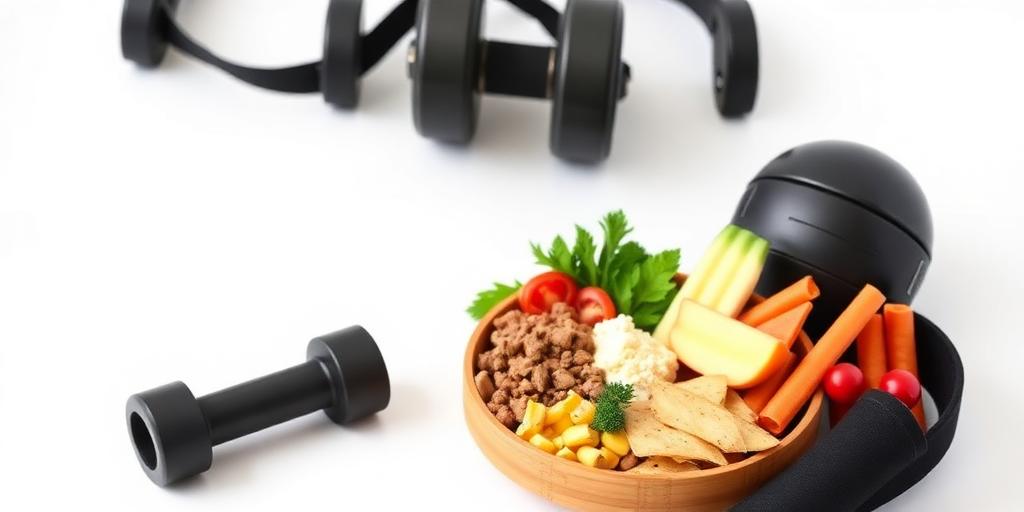Boost Performance & Recovery with Smart Fitness Nutrition
In the realm of fitness, achieving peak performance and efficient recovery hinges not only on rigorous training but also significantly on smart nutrition. What you eat before, during, and after workouts plays a crucial role in fueling your body, optimizing results, and minimizing downtime. This guide delves into the essentials of fitness nutrition, providing actionable strategies to elevate your training regimen.
Understanding Macronutrients
Macronutrients—proteins, carbohydrates, and fats—are the cornerstones of a fitness-focused diet. Each plays a unique role in supporting energy levels, muscle repair, and overall health:
- Proteins: Essential for muscle repair and growth, proteins should be a staple in every fitness enthusiast's diet. Aim for lean sources such as chicken, fish, beans, and protein supplements.
- Carbohydrates: The primary source of energy, carbs fuel your workouts and replenish glycogen stores post-exercise. Opt for complex carbs like whole grains, fruits, and vegetables for sustained energy.
- Fats: Healthy fats are vital for hormone production, nutrient absorption, and providing a secondary energy source. Incorporate sources like avocados, nuts, seeds, and olive oil into your diet.
Pre-Workout Nutrition: Fueling Performance
What you consume before a workout sets the stage for your performance. A pre-workout meal should provide sustained energy without causing digestive distress.
- Timing: Consume a meal 2-3 hours before your workout, or a smaller snack 30-60 minutes prior.
- Composition: Focus on complex carbohydrates and a moderate amount of protein. Examples include:
- Oatmeal with berries and a scoop of protein powder
- Whole-grain toast with avocado and eggs
- A banana with a handful of almonds
Intra-Workout Nutrition: Sustaining Energy
For workouts lasting longer than 60 minutes, intra-workout nutrition can help maintain energy levels and prevent fatigue.
- Options: Easy-to-digest carbohydrates and electrolytes are ideal.
- Sports drinks
- Energy gels
- Diluted fruit juice
Post-Workout Nutrition: Recovery and Repair
Post-workout nutrition is critical for replenishing glycogen stores and repairing muscle tissue.
- Timing: Consume a meal or snack within 30-60 minutes after your workout.
- Composition: Combine protein and carbohydrates.
- Protein shake with fruit
- Grilled chicken with sweet potato
- Greek yogurt with granola and berries
Hydration: The Unsung Hero
Proper hydration is often overlooked but is essential for performance and recovery. Dehydration can lead to decreased strength, reduced endurance, and increased risk of injury.
- Guidelines:
- Drink water throughout the day.
- Consume 16-20 ounces of water 2-3 hours before exercise.
- Drink 8 ounces of water every 15-20 minutes during exercise.
- Replenish fluids post-workout.
Supplementation: Enhancing Your Diet
While a balanced diet should be the foundation of your fitness nutrition, certain supplements can provide additional benefits:
- Protein Supplements: Convenient for meeting protein needs, especially post-workout.
- Creatine: Enhances strength and power output.
- Branched-Chain Amino Acids (BCAAs): May reduce muscle soreness and fatigue.
- Omega-3 Fatty Acids: Support overall health and reduce inflammation.
Practical Tips for Implementation
- Plan Ahead: Prepare meals and snacks in advance to avoid unhealthy choices.
- Listen to Your Body: Adjust your nutrition based on your individual needs and responses.
- Stay Consistent: Consistency is key to seeing results and maintaining long-term success.
Smart fitness nutrition is a game-changer for anyone serious about their training. By understanding the roles of macronutrients, timing your meals appropriately, staying hydrated, and considering supplementation, you can significantly boost your performance and accelerate your recovery. Embrace these strategies and unlock your full potential.








